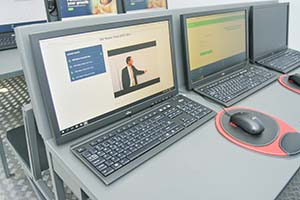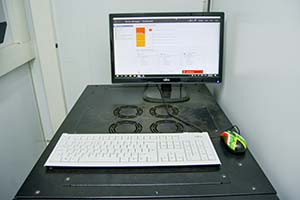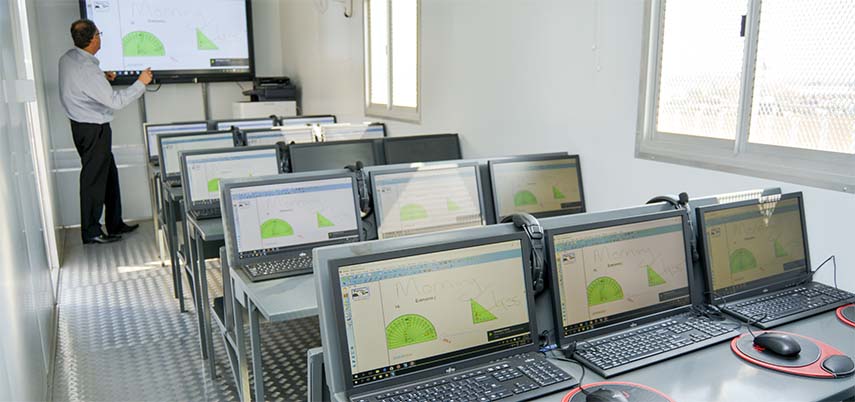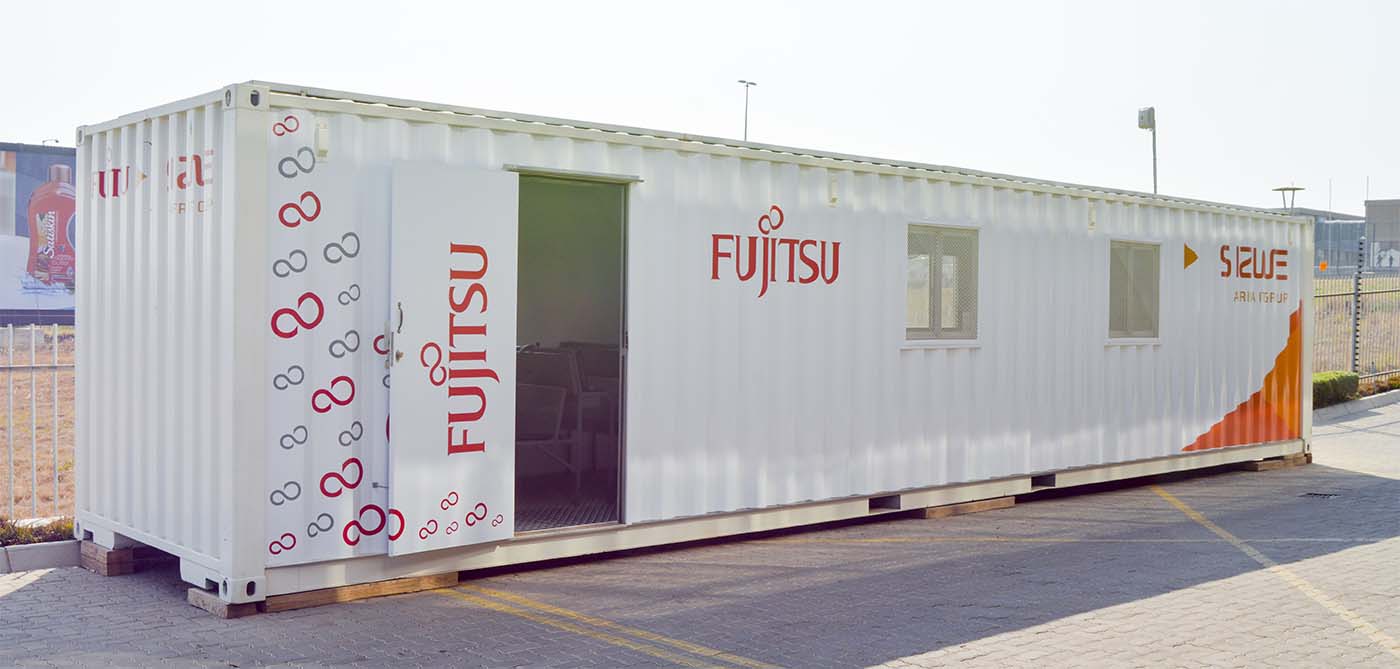Self-contained solar-powered classrooms could be the solution to a dire shortage of resources and facilities at South African schools.
Fujitsu is helping local and rural communities in South Africa to secure a better future for their children by working with Select Partner Sizwe Africa IT Group to provide self-sufficient classrooms equipped with Fujitsu technology.
 Each unit, built into a shipping container, is solar powered and features 27 seats, each with a Fujitsu Futro thin client and display, with educational content delivered to learners via a Fujitsu Primergy RX2530 server.
Each unit, built into a shipping container, is solar powered and features 27 seats, each with a Fujitsu Futro thin client and display, with educational content delivered to learners via a Fujitsu Primergy RX2530 server.
In South Africa, there are few schools or education opportunities in remote rural areas, which means that a large percentage of children who start at Grade 1 face enormous challenges in reaching their Grade 12 national senior certificate.
To help the South African Department of Education bring learning to these communities, Fujitsu and Sizwe Africa IT Group designed the Edu-Smart Green Centre. The secure, state-of-the-art computer-driven classroom facility is flexible, scalable and fully self-sufficient.
The classroom can be built, delivered and fully functional within just 10 weeks, eliminating significant delays in comparison to building with brick and mortar.
 Approvals for such projects are also significantly easier to obtain than for a permanent structure.
Approvals for such projects are also significantly easier to obtain than for a permanent structure.
Each eco-friendly classroom is equipped with nine rows of desks to accommodate up to 27 learners and one educator. Students sit in front of dedicated Fujitsu displays using Fujitsu Futro thin clients, while the educator has an intelligent interactive whiteboard touchscreen to complement additional learning materials.
Content is stored locally and delivered via a Fujitsu Primergy RX2530 M4 server located in a secure cabinet inside the container. Despite their streamlined footprint, the thin clients and server are highly robust and designed to withstand a wide temperature range, ensuring reliable operation even in very hot environments.
Steven Kramer, channel and marketing manager at Fujitsu South Africa, comments: “Our human-centric innovation philosophy is focused on bringing together people, information and infrastructure to create real value for individuals and society as a whole.
 “This project, jointly driven by Fujitsu and Sizwe Africa IT Group, truly embodies our ambition. Through the intelligent application of technology, we are making a positive contribution to every community that is reached by the classrooms. Extending digital learning to these young people gives them previously unthinkable opportunities to secure a better future through education.”
“This project, jointly driven by Fujitsu and Sizwe Africa IT Group, truly embodies our ambition. Through the intelligent application of technology, we are making a positive contribution to every community that is reached by the classrooms. Extending digital learning to these young people gives them previously unthinkable opportunities to secure a better future through education.”
Jos Matthysen, executive: managed services at Sizwe Africa IT Group, adds: “We are committed to improving the opportunities for school-age children in South Africa by providing local and rural areas with access to education. Our self-sufficient classrooms bring interactive content to learners and can be used with or without a teacher or text books. By providing these educational opportunities, we aim to secure a better future for these communities and to improve our country’s education, social and economic growth.”
While the digital classrooms have Internet connectivity, they are designed to run without web access, since mobile network connectivity is patchy or non-existent in remote areas and many rural communities do not have any internet access. This also eliminates the cost of mobile data, since all core content – including lesson modules, assessment data and reports – is available locally on the server.
The units are fully powered by solar panels located on the roof and have battery back-ups.
Watch the video here.


